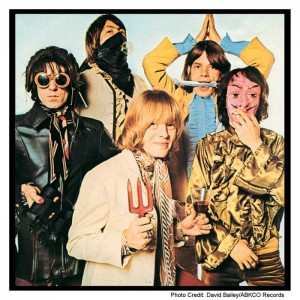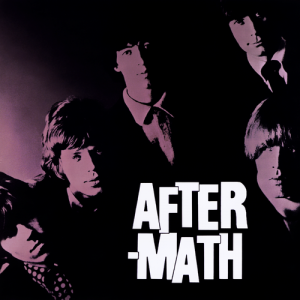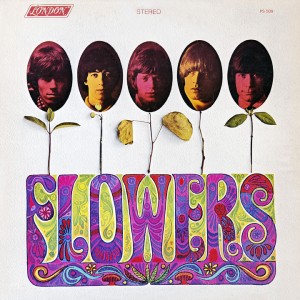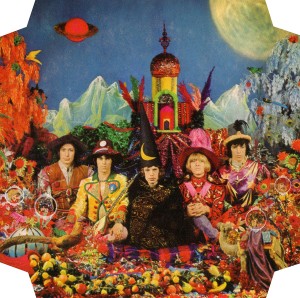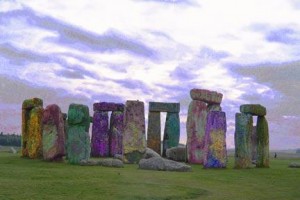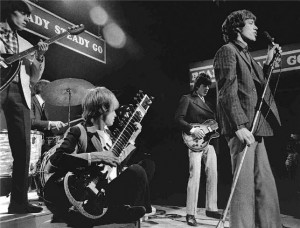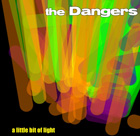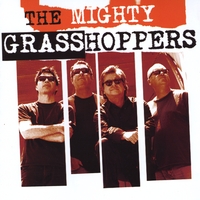The Rolling Stones: A Great Brit Pop Band?
It’s their fault. FM Classic Rock radio stations, as commercial and shabby as AM Radio was decades ago, have reduced some of the greatest Rock bands to a short playing list as the Baby Boomers age and the younger Classic FM listeners think that Van Halen is the shit. For the Stones that means their career started in 1968 (“Jumping Jack Flash”) and ended in 1981 (“Start Me Up”). In between we get “Honky-Tonk Women”, “Sympathy for the Devil”, “Gimme Shelter”, ‘Miss You”, and a couple more. You get my drift. Forget the Chuck Berry’n’Blues Kids, the ones that made “Little Red Rooster”, the Blues classic, a 1964 Number One Hit in the UK. The band that changed Rock music in the mid-Sixties with a string of awesome singles. But also ignored, in a short period from 1966 through 1967, are the rockin’ Pop/Hip Stones, a band sounding as British as the Kinks and the Hollies, the Zombies, and… the Beatles. The youngsters don’t really know about this short, lively era of melody and songcraft. Even the young muzik historians are usually in the gray, if not the dark, about this period.
Take Taylor, a friend who’s half my age. He’s a musician, a producer, a songwriter, etc. who does know the past. And, for him, THE BEATLES ARE IT! Great, but I shared with him a bit about the Pop/Psychedelic Stones (Taylor was well aware of “Paint It Black” and dug it) and he asked for some CD’s. So I gave him “Aftermath”, “Between the Buttons”, “Flowers”, and (with trepidation) “Their Satanic Majesties Request”. I waited for his response. Gulp. To my surprise, he loved the songs and even admired “Majesties”, the “acid album”. Taylor saw the Stones in a new light. Not just a great, doped up, rocking band with swaggering decadence, but a group that also had Pop sensibilities – melodies and nuances and catchy hooks up the ying yang. Taylor changed his mind about the Stones and even began writing songs influenced by the insidious Glimmer Twins.
Their first great Pop song was written for Marianne Faithfull, an international hit, something called “As Tears Go By”. When Mick and Keith originally penned it, they didn’t want the soft ballad to wreck with their Bad Boy image and thus Marianne (another Andrew Oldham act) took it and ran to stardom. Marianne, of course, would become Mick’s lover and they reigned as Rock’s King and Queen before there was a John and Yoko. Anyway, in late 1965 Mick sang the tune backed by acoustic guitar, harpsichord and violins. It went to #4 in the USA and changed a few minds about the band’s musical depth. Of course, this is when many (especially John Lennon) would say, ‘You’re just copying the Beatles!” Well, maybe but soft, wistful Pop ballads about life’s regrets had existed for quite a while. But if Lennon said it, it must be true, right?
In April 1966, the UK version of Aftermath was released. It didn’t have ‘Paint It Black” as the US album did, but the Pop side of the band emerged on several tracks. “Mother’s Little Helper”, a driving Folk/Pop ode to pill-popping, middle-class mums (and later a hit single), lead off the album with an acoustic guitar thrump and a thin, electric guitar sound akin to a sitar. No deep electric fuzzzzz or bluesy moodiness. An almost cheerful laugh at legal dope in the Queen’s England with one of the most famous lines in all Rock music – “What a drag it is getting old”. Other excellent Pop tracks were there too, but one stands above them, “Lady Jane”. Again, Lennon would say the Stones were copping his sound, but when you actually listen to it, the Beatles never made a song with this vibe. The lines are those of a debauched English cavalier from the late 17th century who is discreetly dismissing his mistresses as he has chosen to marry Lady Jane, a woman of wealth. The “real meaning” is much dirtier. “Lady Jane” is the term used for a woman’s vagina in “Lady Chatterly’s Lover”. Mick is choosing nookie over love. Lying beneath the gorgeous, courtly melody are a dulcimer, harpsichord, autoharp (all played by Brian Jones) and acoustic guitars. I can hear some Donovan in there, but no Beatles. This sound shows up later in Jethro Tull and Emerson, Lake and Palmer’s hits (“Lucky Man”, for instance).
“Between the Buttons” came as a complete surprise to Taylor. Oh, he knew “Let’s Spend the Night Together” and “Ruby Tuesday”, but an entire Stones album without a single raunchy guitar lick or Blues tune? An album that sounded like Ray Davies of the Kinks had co-written many of the songs? OMG. Released in January 1967, five months before THE ALBUM, “Sgt. Pepper’s”.
Created by Keith as he worked with Brian in the studio, “Ruby Tuesday” is The Track, one of Rock’s great ballads about a rootless woman, an escape artist totally afraid of standing still. A 1960’s gypsy. There are other notable songs. A music hall tune, “Something Happened to Me Yesterday”, wherein Richards describes taking LSD for the first time (“ He don’t know if it’s right or wrong/ Maybe he should tell someone/ He’s not sure just what it was/ Or if it’s against the law”). Yes, the production is Beatle-esque, but the satirical lyrics and vocals are totally “Rainy Day Women 12×35”.
There are songs about neurotic, young English women trying to survive in Swinging London. The rocker “Miss Amanda Jones”, a discotheque darling who can’t stop dancing, who can’t stop the social swirl she lives in as she searches for a rich husband. “She Smiled Sweetly”, where a lonely, brooding church-like organ takes us into the world of a depressed woman, probably dealing with an unfaithful lover, who stays bizarrely calm as she tries to cope, driving her man even further away. The very rich society girls (“Cool, Calm, Collected”, “Complicated”) who play all of the head games they can to hide a gnawing emptiness.
But there is also the betrayed young man. Jagger’s tortured vocal in “All Sold Out” signals the anguish of a hipster who cannot possibly understand why his woman would cheat on him. How dare you screw someone else? (No matter what I might be doing). The multiple guitar layered “Who’s Been Sleeping Here?” where Jagger and Company definitely use Dylan-style lyrics as a more snide boyfriend angrily tries to embarrass his pitiful gal with stupid ideas of who the likely candidates are – a butler, a baker, a soldier, a sailor, etc.
Two excellent songs deal with the travails of Stardom. In “Connection” (a Keith song, who else?), the singer recounts the hassle of dealing with airport security squads as he’s sneaking dope past them, trying to get “back to you”. “You” is his dealer, his connection. In “Yesterday’s Papers”, Jagger gives us an inside look into his tiny bubble. Everything is whizzing past – fame, fortune, lovers, parties, making hit songs – and he has no time for yesterday, just as everyday people throw yesterday’s newspapers in the trash. He is judged by what he does today. Is he still Cool? Is the latest single Number One? A twenty-three year-old Jagger believes he is only one crappy album away from being a has-been (“I’ve lived in a world of constant change/ Every day is a turn of the page/ Yesterday’s papers are just bad news/ The same thing applies to me and you”).
“Buttons” has a unique Sound. Charlie has to play his most eccentric beats as he mashes through a number of the tempo-changing, mood swinging sections. Brian creates extra textures with flute, sitar, banjo, harpsichord, marimbas, and brass. Keith’s acoustic playing is assured and tasteful. Keith’s electric guitar skills jump a whole new level above “Aftermath”. By this time, a listless Brian barely played guitar in the studio, preferring to tinker with more exotic instruments. So Keith had to fill the gap by himself, and he matches the challenge. His brief, rapid fire electric leads and fills lash out from the mix, never drawing too much time or attention from the overall arrangement. His rhythm parts have a tighter flow than the groove that one usually associates with Keith, “Keef” of the morphine-addled “practiced sloppiness” of the Golden Era (1968 – 1972). This is an amphetamine jacked-up Richards.
Applause is also due the sharp, witty lyrics – sometimes campy and gay, sometimes bitter and cutting. Many current rockers underestimate the lyrics of a Jagger/Richards song, which is one sign of their non-awareness of this album. It is precisely a record of its time, the London of leggy models, cutting edge fashion, Eastern esoteric philosophy, and the new wave of British filmmaking (“Blow-Up”, “Darling”, “Alfie”, “To Sir, With Love”, “Georgy Girl”), movies with characters who could have existed within these songs.
“Flowers” is a compilation record that held songs not on the American versions of the latest albums or singles and b-sides. Despite this hodge-podge, when released in America in July of 1967, it went to #3. Two “new” tracks are sublime – “Back Street Girl” (UK “Buttons” song) and “Sitting on a Fence”, an “Aftermath” sessions track. Both are acoustic Pop/Folk songs, but “Back Street Girl” has an accordion (yes!) playing a delightful “valse musette” part as if we were listening outside of a Parisian café. Jagger’s voice is that of a haughty, wealthy man ordering his socially inferior mistress to stay out of his upper-class life and marriage (“Don’t want you part of my world/ Just you be my back street girl”). You really have to hear it. On “Sitting on a Fence”, Keith plays his best acoustic baroque guitar licks. Mick’s anti-matrimony lines are among his juiciest (“All of my friends at school grew up and settled down/ And they mortgaged up their lives/ One thing’s not said too much, but I think it’s true/ They just get married cause there’s nothing else to do”).
1967, though, was a thoroughly rugged year for the band. The Mick-Keith-Brian triangle finally collapsed. The band belonged to Mick‘n’Keith. In Morocco’s clouds of hashish, Brian and Anita Pallenberg split bitterly and she became Keith’s lady. To top that, the trio was busted for drugs and the scandal rolled out into every major newspaper in the world. The UK Establishment smiled nastily. The band never knew what the next day would bring. Oh, and as far as music, the Beatles released “Sgt. Pepper’s” in June, still considered by many Rock critics as the Greatest Album of All Time. Oh, crap…
In shambles as a band, they kept pushing on. This is where the copping on the Beatles really is evident. Jagger had always been friendly with John and Paul, even to the point of hanging out in the studio when they recorded, watching George Martin’s engineering wizardry enhance the group’s creativity. Mick was an apt student. August 1967. To regain momentum, they cut two new songs to be a “double-sided a single”, “We Love You” (a wicked take off on the hippie “love culture”) and “Dandelion” (a stoner song about the British children’s game of blowing dandelion seeds). Paul and John even did the backing vocals on them. “We Love You” begins with sounds of punching and a prison cell door slamming shut. Then Nicky Hopkins pounds out a manic piano riff and – it’s off! The vibe is ironically beatific, baby. Mick proclaims that the boys love everybody, even the cops who busted them (but not really). The lyrics go from “peace and love” to saying that The Establishment is not for them. Brian plays a demonic mellotron, a vast keyboard romp that rides the last chaotic section with a feeling of sheer abandon (I must admit that this tune is one of my dirty secret Stones faves). Sonically, “Dandelion” plays it safer. The track could’ve been on “Buttons” except for the extra production “shine” that was gleaned from “Sgt. Pepper’s”. The dandelion game evokes a childlike innocence that is actually stoner wisdom, another Counterculture motif. The response was mixed. Most critics judged them as second rate Beatles jingles (Jimi Hendrix disagreed). The record peaked at #8 in the UK but only #14 in the USA. BTW, Taylor likes them both, though.
A light bulb went on. Hah – make a Psychedelic album to match the awesome record by the Lonely Hearts Club Band! Exhausted, Andrew Oldham stepped away, but as far as recording his absence meant little. Stones albums were actually a band production with plenty of input from the engineers. They originally wanted to call it “Cosmic Christmas”, but they settled for a spoof of an English passport phrase, “Their Satanic Majesties Request”. Dopeheads using a devilish title (and then criticized as being anti-religion). The cover was gorgeous – the Stones wearing fantasy costumes sitting before a paradisical landscape graced by a majestic palace – and it was in 3-D. It was obviously an homage to the ground breaking “Sgt. Pepper’s” sleeve. Many fans weren’t aware that there were faces of the Fab Four hidden in the bounty of flowers close to the Stones. It was positively intoxicating.
The music? Drunk, maybe, but not intoxicating. The longest track is a muddled, experimental seven minute mess taking the listener into the acid trip somebody’s having at a party. Jolts of instrumental noise mixed with people shrieking. Bad idea. At least the rest is better. To be fair, the album does have some strong moments. “In Another Land”, a Bill Wyman tune with no other Stones on the track (Steve Marriott of the Small Faces sings back-up and plays guitar), a simple harpsichord pattern is coupled with windy sound effects. Wyman is a man enjoying a romantic dream, who wakes and finds himself sadly back in reality. “She’s a Rainbow” is a gossamer single, a total Flower Power love song praising the beauty of Marianne Faithfull, who is a virtual rainbow as Mick observes her on LSD. Very Beatles – spritely piano by Hopkins and violins abound and happy/happy/happy! Only reached #25 in the USA. But the track that shows what the record could have been is “2000 Light Years from Home”. This is one of the all-time great Psychedelic songs. Many Counterculture youth were obsessed with science fiction and outer space, the stars and planets in the zodiac. The mood is lonely and eerie. The further the space ship zooms away from Earth, the greater the feeling of alienation. Brian is at his peak, drenching the song in waves of feeling from his mellotron. Mick’s voice wanders through the mix, a lost soul on a journey through the vast unknown. A confused generation could relate.
For most, this was the Stones’ “Beatles album”. The influences were clear and the Stones were not even close to the magic of “Sgt. Pepper’s”. It sold briskly, rising to #2 in America and #3 in the UK, helped by the holiday season. As it dropped off the charts in early 1968, the Stones music would go on to a hedonistic earthiness and the curtain went down on Pop Hipness. In Rolling Stone Magazine’s “500 Greatest Albums”, “Aftermath” is rated #109 and “Between the Buttons” is #357.
However, in 1994 on “Voodoo Lounge”, the band did visit Baroqueville again. In “New Faces”, Jagger is now the Older Man warning his ex-lover not to fall for the latest Young Stud on the scene (time wounds all heels). The track is solid and professionally done with a synth harpsichord and acoustic guitars weaving nicely into the mix. But the emotion is thin, more like the guys saying, “Remember this?” Jagger, in his 1992 solo album (“Wandering Spirit”), does Pop Baroque much better in “Angel in My Heart”. You can tell that Rick Reuben pushed Mick for substance. There’s a funny anecdote where Rick was telling the engineer the effects settings for the backward-tracked guitar line. Mick told him he was wrong. Rick disagreed. Mick then looked at him and sighed, “I was there, Rick.” Reuben changed the settings.
You know, I think I’ve changed my mind about the fault lying totally with money-sucking FM Classic Rock stations. The Stones must share it. In their tours since 1969, they’ve rarely played a track from that era. In the 90’s, Jagger said that doing a Stones album and tour was like a Bond film, people expect certain things and you’ve got to give them what they want. I disagree. That’s one reason why the Stones creativity has dried up. If you only play certain giant hits over and over, that’s what will be remembered. That’s where the smart money is. Well, the Stones have made a lot of cash in their career. Maybe it’s time to celebrate ALL of the musical jewels that gave them a 50 year run, including gems found in a magical land where one can still smell incense and hear the echoes of sitars.
—Gary K Nomeland

